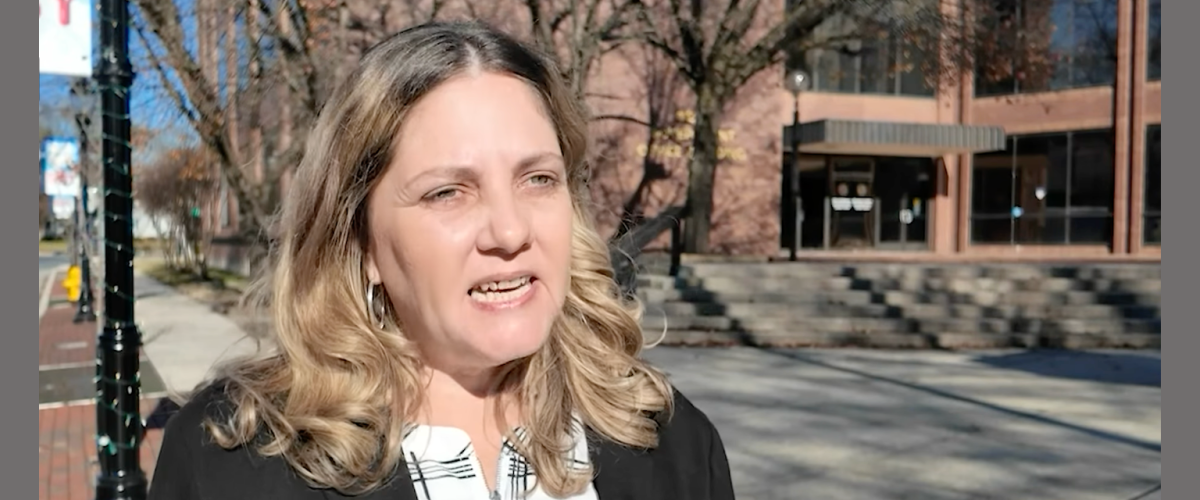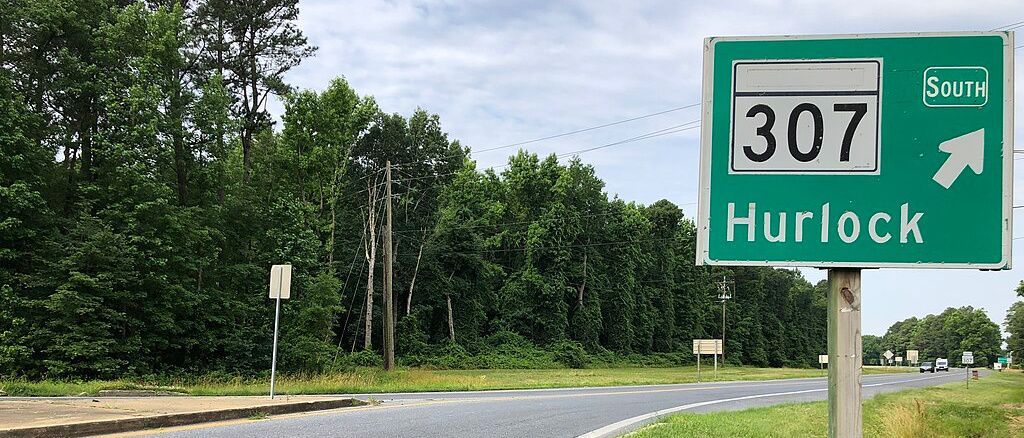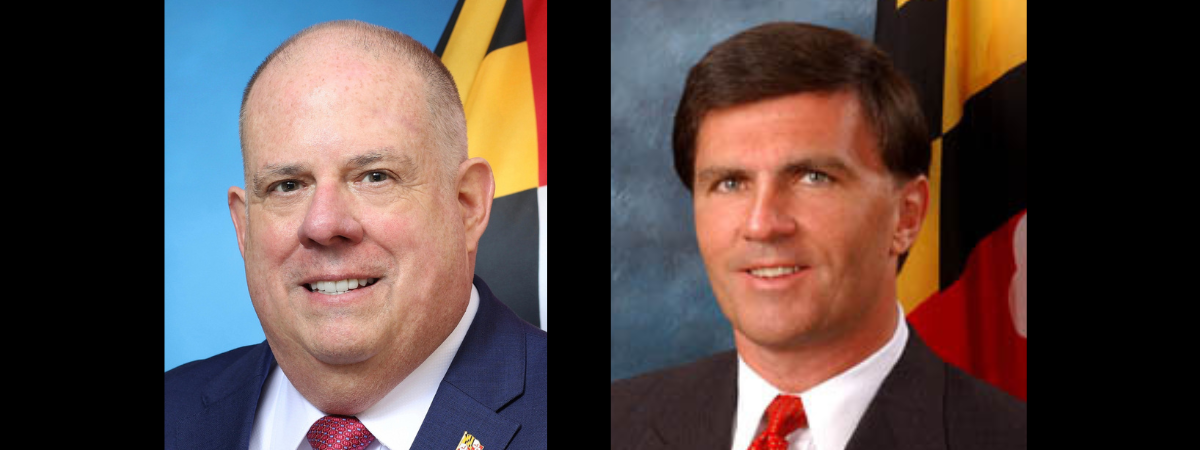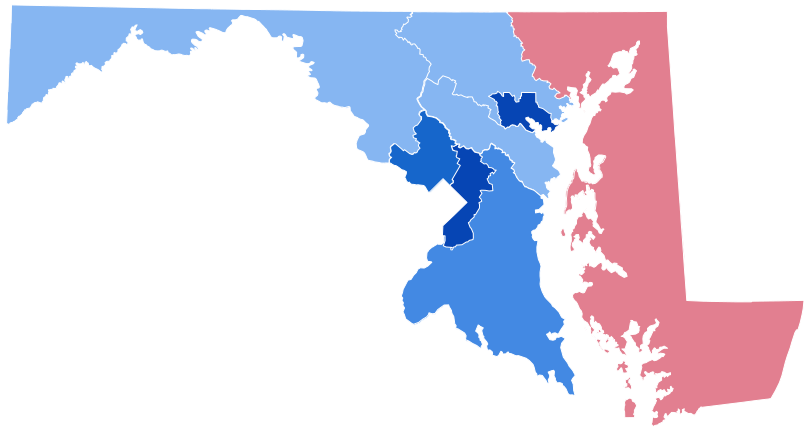Opinion: The Case for Angela Alsobrooks

It’s easy to make a case for voting for Angela Alsobrooks on strategic grounds, to keep the Republicans from gaining control of the U.S. Senate. There’s no question that’s an important goal, especially given the recent concerns over the presidential race. A Democratic Senate could be one of the country’s strongest protections against a Republican president with authoritarian longings. She would also be the state’s first Black senator, and only the second woman in that office.
But as important as those arguments are, Alsobrooks is not just some generic placeholder to keep Maryland’s open Senate seat “blue.” She is a strong candidate in her own right, with extensive experience in government and politics at the local, state, and national levels. She would be a good choice to represent the state even in a less critical political climate. Let’s take a look at her record and the positions she advocates.
Born and raised in Suitland, Prince George’s County, Angela Alsobrooks is a graduate of Duke University and University of Maryland Law School. She was admitted to the bar in 1996 and worked as a law clerk in the Howard County circuit court, then the Baltimore City circuit court.
She returned to her home county of Prince George’s in 1997 as assistant state’s attorney, with a focus on domestic violence cases, a position she held until 2002, when she became legislative liaison to the county executive, then worked as executive director of the county’s revenue authority.
Alsobrooks had been interested in politics since high school. She worked as an intern for Congressional Delegate Eleanor Holmes Norton, and attended the 1992 Democratic National Convention, working for candidate Bill Clinton after the convention.
In 2000, she was on the presidential campaign staff for Al Gore, and in 2008 she ran for delegate to the Democratic National Convention, pledged to Hillary Clinton. Following the convention, she worked for eventual President Barack Obama. And in 2016, she again attended the convention as a delegate for Clinton.
In 2010, Alsobrooks was inspired by a magazine story on Kamala Harris, who was then district attorney of San Francisco. With Harris’s encouragement, she ran for state’s attorney of PG County. She won and was reelected in 2014. She was seen as a “tough on crime” prosecutor, and increased prosecutions for property crimes such as car break-ins, vandalism and burglary.
At the same time, she supported rehabilitation for juveniles, and worked to reduce problems in the county school system. She also worked with Harris to implement a “Back on Track” program, designed to reduce recidivism in the county. The program was modeled on one introduced by Harris in San Francisco.
In 2018, Alsobrooks ran for PG county executive, defeating former U.S. Representative Donna Edwards in the primary and winning the general election unopposed; she was reelected in 2022. Her focus as executive was on creating jobs and new economic opportunities. She was also a strong advocate of education, building 10 new schools during her first six years in office. She also expanded healthcare access and made crucial decisions to keep county residents safe during the early years of the covid-19 pandemic.
She was critical of the Supreme Court’s Dobbs decision as soon as it was announced, saying that the choice to get an abortion should be “a family decision” by a woman, her family, and medical professionals. If elected to the Senate, she said she would work to overturn the Dobbs decision and would not support any judicial nominee opposing abortion rights. In an interview with the New York Times before the Senate primary, she said, “As women, we don’t want people talking about us and making decisions about us without us.”
On immigration, another issue likely to be a prominent feature in this year’s national elections, Alsobrooks has stated her support for comprehensive immigration reform, including proposals to allow a pathway to citizenship for undocumented immigrants. As county executive, she opposed efforts by the federal Immigration and Customs Enforcement agency to enlist local law enforcement to detain suspected undocumented immigrants for potential deportation efforts.
On foreign policy issues, Alsobooks has expressed support for a two-state solution to the Israeli-Palestinian confrontation, and has called for a cease-fire along with immediate release of captives held by Hamas. She has also advocated for foreign aid to Ukraine in its war with Russia, although she opposes sending American troops to fight for Ukraine.
Alsobrooks’ website includes a detailed list of her policy priorities, along with endorsements by a host of national and local leaders and organizations.
Clearly, Angela Alsobrooks is a well-qualified candidate whose views are in line with those of many Marylanders. This year’s Senate race is arguably the most important for that office in many years. Let’s hope the state’s voters look carefully at the candidates’ positions and experience and make a choice that will best serve both the state and the nation.
Peter Heck is a Chestertown-based writer and editor, who spent 10 years at the Kent County News and three more with the Chestertown Spy. He is the author of 10 novels and co-author of four plays, a book reviewer for Asimov’s and Kirkus Reviews, and an incorrigible guitarist.
Common Sense for the Eastern Shore







